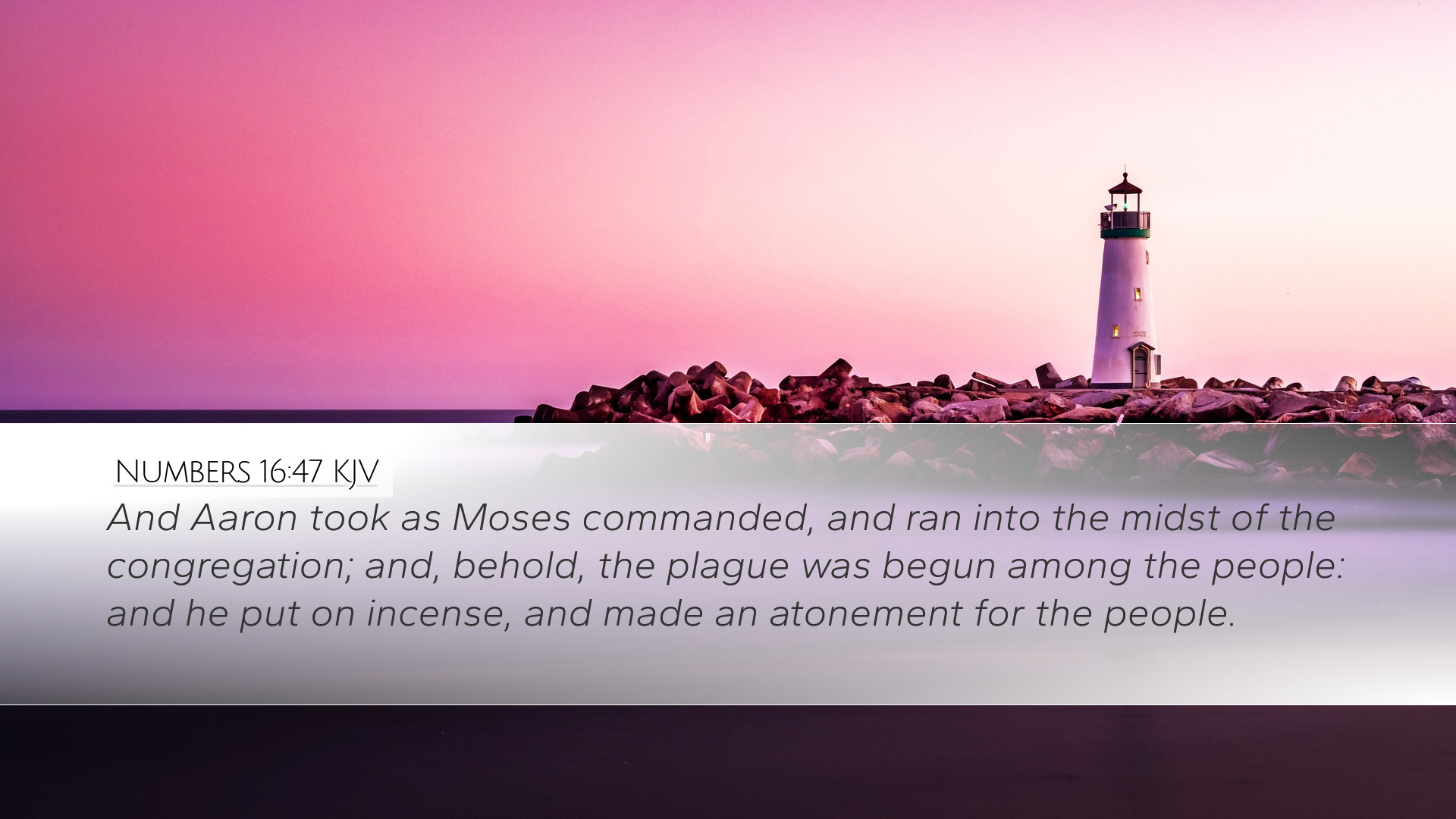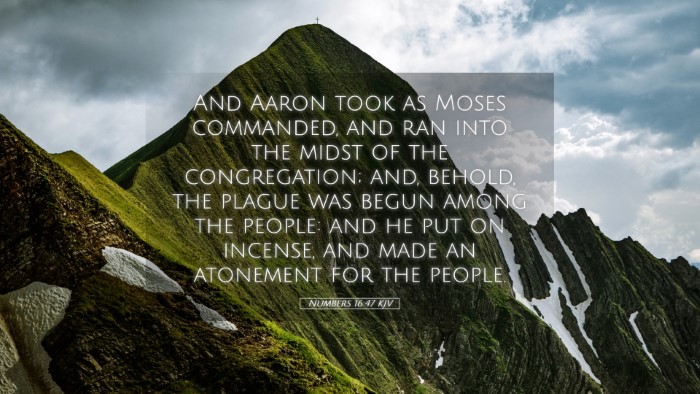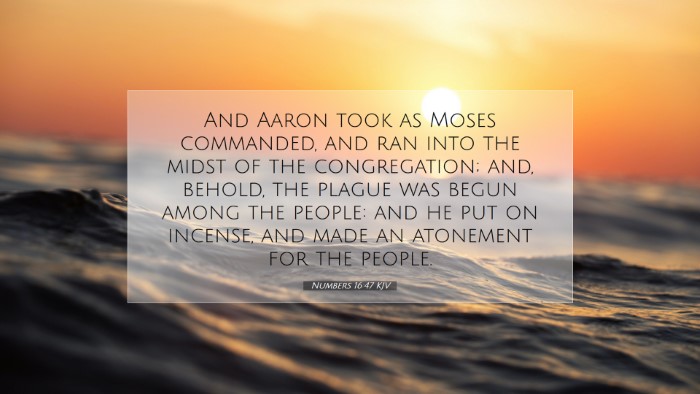Commentary on Numbers 16:47
Numbers 16:47 states: "And Aaron took as Moses commanded, and ran into the midst of the congregation; and, behold, the plague was begun among the people: and he put on incense, and made an atonement for the people."
Introduction
The episode of Numbers 16 is a pivotal moment in Israel's journey through the wilderness, marked by significant rebellion against the authority of Moses and Aaron. The verse in question encapsulates Aaron's urgent intercession amidst a divine plague, highlighting themes of leadership, atonement, and the critical role of mediators in the relationship between God and His people.
Contextual Background
Prior to this verse, we observe the rebellion led by Korah, Dathan, and Abiram which questioned Moses’ and Aaron's divine appointment. God responds by affirming the holiness of Aaron's priesthood and the consequences of disobedience. This escalates to a plague that threatens the lives of many Israelites, demonstrating God’s judgment and the urgent need for mercy.
Significance of Aaron's Role
Aaron's swift action showcases his role as a mediator. As Matthew Henry notes, "Aaron’s running signifies the great urgency of intercession," emphasizing both the seriousness of the plague and the desperation of the people. This moment illustrates the priestly duty of acting on behalf of the community, aligning with the concept of atonement found throughout Scripture.
Incense as a Symbol
The use of incense in Aaron's act of atonement is rich in biblical symbolism. Albert Barnes elaborates that "incense represents the prayers of the saints, ascending to God." The rising smoke forms a poignant picture of intercession, signifying the believer's prayers as a means of seeking God’s mercy and forgiveness.
Theological Implications
This verse poses significant theological questions regarding God’s character, justice, and mercy. It invites deeper examination of how divine holiness interacts with human sin. Adam Clarke points out that “the plague represents God's displeasure with sin, but Aaron’s incense portrays the means of restoration and reconciliation.” This duality opens up rich discussions around God’s justice contrasted with His grace.
Atonement in the Old Testament Context
The concept of atonement is foundational in the Old Testament, with sacrifices and offerings serving as symbols of reconciliation with God. Aaron’s action prefigures the ultimate atonement found in Christ, where Hebrews 9:12 states, "Neither by the blood of goats and calves, but by his own blood he entered in once into the holy place, having obtained eternal redemption for us." This connection invites an integrative study of the continuity of God’s redemptive plan.
Lessons for Leaders and Believers
From Aaron's example, several lessons emerge for contemporary leaders and believers:
- Urgency of Intercession: Leaders must act swiftly when faced with crises, recognizing the weight of their responsibilities to the people they serve.
- Role of Prayer: The importance of prayer as an instrument of atonement and the need for believers to intercede for others in times of judgment.
- Recognizing Divine Judgment: Acknowledging the reality of sin and its consequences while also proclaiming the mercy available through Christ.
Conclusion
Numbers 16:47 provides a profound snapshot of God's engagement with humanity, illustrating the rich theological themes of intercession, atonement, and the urgent nature of responding to God's call. As we reflect on this passage, we are reminded of the mediatorial work of Christ and the ongoing call for believers to be stewards of God's grace in the world.
Further Reflection
In light of this passage, scholars and theologians are encouraged to explore how the intercessory role of Aaron foreshadows Christ's work in the New Testament, inviting deeper theological reflection on our responsibilities as mediators of God’s mercy in contemporary society.


